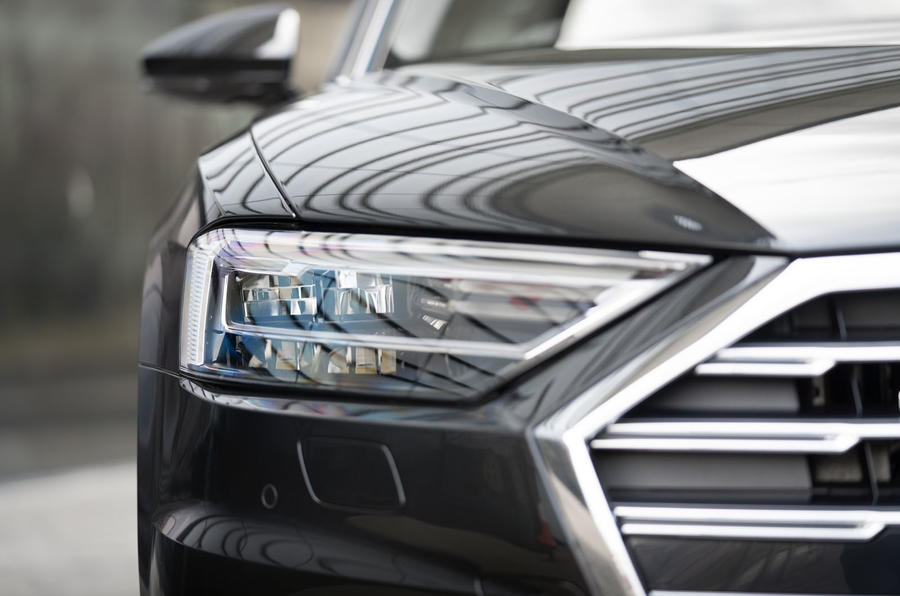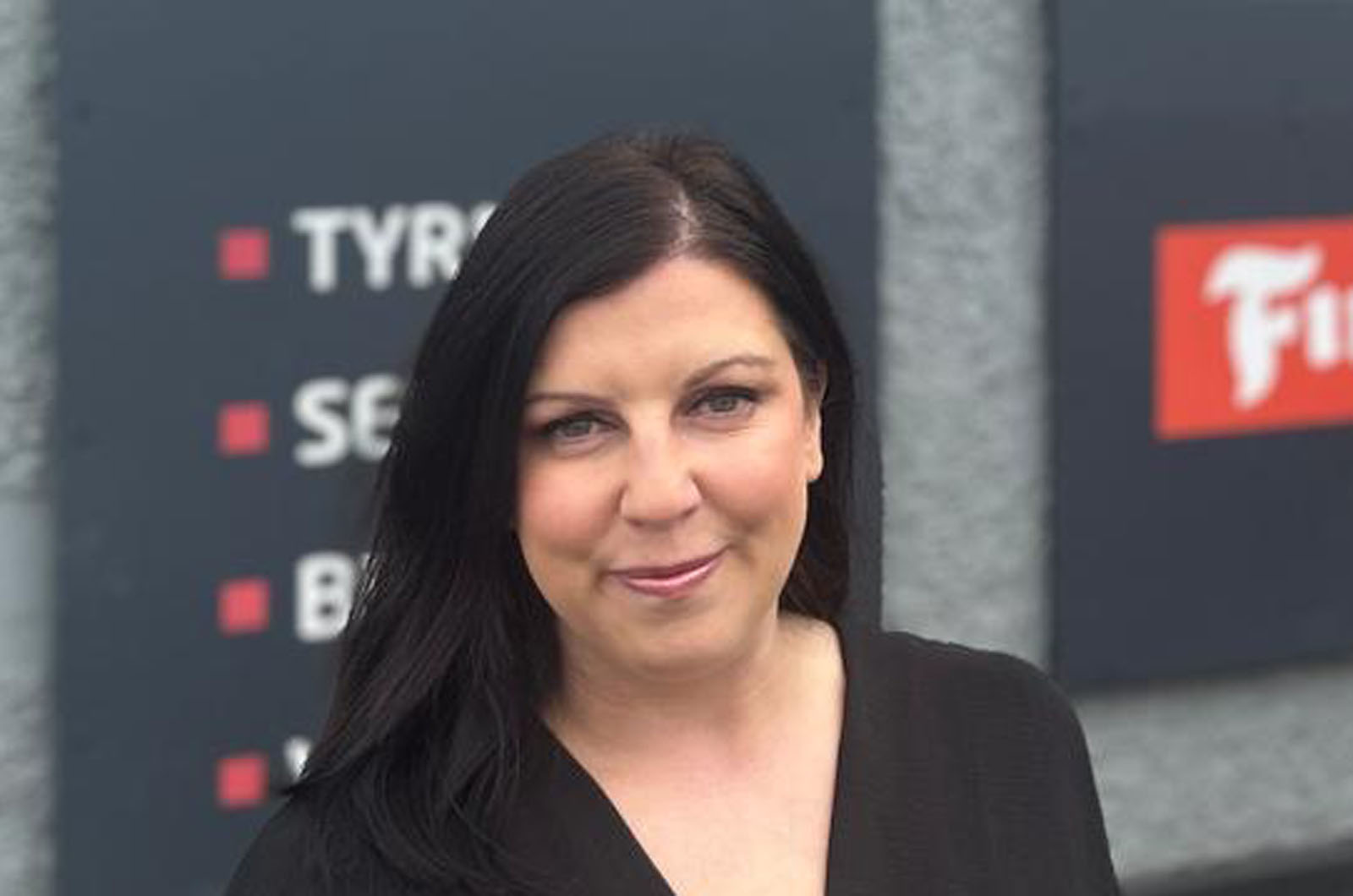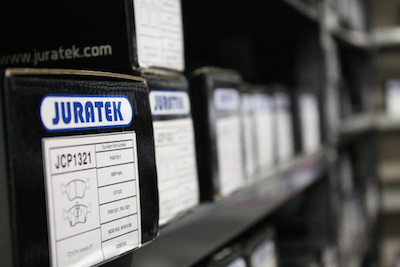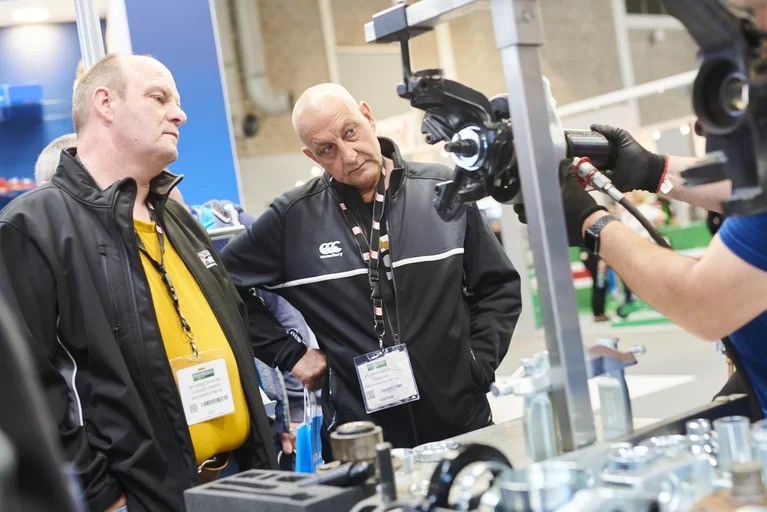 It’s nothing new for any reader of this magazine to be told that some parts are better than other parts.
It’s nothing new for any reader of this magazine to be told that some parts are better than other parts.
Many claim to be of ‘matching quality’ to the original, a provision included in Block Exemption Regulation in order to allow alternative parts to be used and vehicle manufacturer warranties to remain intact.
Unfortunately it’s a phrase that has no substance behind it. There is no testing or control of the claims and, as a result, some, but by no means all, matching quality components are anything but.
If workshops use them, they could face complaints from their customers when things go wrong. If there are enough of those issues, the use of cheap, substandard parts which claim to be of matching quality but aren’t, could threaten the very viability of the aftermarket.
Sometimes the saving that comes from using cheaper parts might only amount to a quid or so – a small gamble that could cost a big chunk of the £10+ billion service and repair market.
These small savings are more typical on filters, rather than clutches, or brakes, but it’s Mann+Hummel that has had enough and decided to hit back at spurious matching quality claims.
It’s not doing things by halves, either. To demonstrate just how different one filter can be from another, despite outwardly appearing identical, it bought a lot of filters and then set about cutting them apart.
Making the case
The filter company took CAT through one of 50 very impressive presentation cases it has made for the filters so sales staff can take them around workshops and factors to show that what may look identical from the outside is really a faded facsimile of the original.
 Matthew Say is the company’s Aftermarket Business Manager. “You and I could jump on a flight tomorrow, go to visit a virtually home-production facility and make these filters. We could then decide to say Matthew and Peter’s filters, ‘OE equivalent. Super BER. Will not invalidate warranty.’
Matthew Say is the company’s Aftermarket Business Manager. “You and I could jump on a flight tomorrow, go to visit a virtually home-production facility and make these filters. We could then decide to say Matthew and Peter’s filters, ‘OE equivalent. Super BER. Will not invalidate warranty.’
Ken Read is Mann’s Aftermarket Product and Marketing Manager: “The thing that hurts the most is that there is the promise being given by Matthew and Peter’s filtercompany that the product matches the quality of the original.
“That’s a promise you give to your customers the factor, the factor gives the same promise to the garage and the garage wants the matching quality to comply with BER and keep the dealers happy.
“That promise goes down from the garage to the end user, the motorist, and everybody gets duped.”
Strong stuff, but once you’ve seen Mann+Hummel’s briefcase of horrors its easy to agree as the quality is breathtakingly shocking on some of the filters that are readily available to the aftermarket and being used in significant quantities. There are cheap steel rusting pressings with low quality, and low volume, of filter media.
By-pass valves that don’t seal or operate at the right differential pressure, which could either restrict flow or allow unfiltered oil to bypass the filter in an unintended way. Engines and turbochargers are then put at risk, no matter how diligent the workshop might have been with the grade of oil that was used.
Seals are often made from the wrong type of material that won’t last until the next service interval and don’t create a proper fit. It means anti-drain valves won’t work and engines could start without lubrication. It’s also another chance for unfiltered oil to completely bypass the filter.
“Perhaps we were being naïve, because we were genuinely shocked by the results,” says Read. “As a market-leading filtration company, if we were shocked, I can only imagine how the market would be shocked.
“Look what is in there guys, you have no clue. We suspected something, but we didn’t expect it to be this bad.
Describing one filter Read says: “Astonishing. This product, in its entirety, is made by different families. One makes the end caps, the other the media, another a bypass valve. They deliver to another family to bring it together.”
Say adds: “100 percent OEM equivalent matching quality? Self-signed certification? The reality is that they’re not fit for purpose. A promise has been made and a promise has been broken.
“What is the benefit of putting £60 oil in there? The oil is irrelevant if you don’t use the right filter.
“The terrifying thing is that there will be thousands and thousands of vehicles today, all over the UK with these filters. The problems are in the post, they are coming.
 “I can understand the temptation if you’re talking about a DPF or a clutch and there’s a £200 or £300 saving. But when you’re talking less than a cost of a newspaper? It’s not even a Mars bar. It’s absolutely outrageous.
“I can understand the temptation if you’re talking about a DPF or a clutch and there’s a £200 or £300 saving. But when you’re talking less than a cost of a newspaper? It’s not even a Mars bar. It’s absolutely outrageous.
“My argument is to the garage. When they’re given two cans it’s tough. Put these next to each other, how do you truly know, really? That’s a tough argument.
“When Mrs Jones has handed over the keys, she hasn’t asked for the cheapest of the cheap. You have to ask where the decisions are being made. It’s garages that have requested this.
“That moment of faith when Mrs Jones hands her keys over puts her trust in the garage. They make the decisions. Invariably the garage makes the right decision, because we’re seeing growth, but we want to make sure all the facts for our product group are laid out.”
In theory the Mann sales team could show the filters to 4000 garages a year based on the number of calls they make each week, but the kits are also being loaned to factors and making appearances at every trade show.
Educational material is also being produced for telesales. Read says: “There’s so much apathy at a garage and telesales
level where these decisions are taken. If the garage objects to the price and asks if you haven’t got anything cheaper, the telesales guy will say ‘yeah I’ll send you this’.
“What we’d like them to
say is ‘yes, this one is cheaper, but there’s a downside to it’. We’ve got to keep plugging away at that.”
The other side of the coin
Hang on a minute, though. There are plenty of parts produced by the aftermarket that do match the quality of
the original. It’s perfectly feasible that some aftermarket products should exceed the original quality, too.
That’s exactly what Meyle does with its range of 650 HD parts which are backed by a four year unlimited mileage warranty.
Like Mann+Hummel it has a case of components to demonstrate quality. Andrew Tress is the Sales Manager: “Sometimes the only way you can convince distributors is
with samples, with a visual aid. One of the best examples in our case is an OE drop link which is cut away at the ball joint, so when you compare to ours, you can see the difference.”
The problem is that there’s no way of sorting the wheat from the chaff. Every aftermarket part supplier is in danger of being tarred with the same brush unless they all carry their own case of components.
Tress says: “We do find it frustrating that all aftermarket parts have a certain stigma attached to them until you convince the distributors and end-user otherwise. Educating them is part and parcel of our day-to-day work.
“Our parts are more expensive than others, but some of the expense in that is the quality checks, the research and development and the investment in our plant where we manufacturer our parts. It’s a cliché, but if it’s cheap, it’s cheap for a reason. It’s as true today as it was 50 years ago.”
a few things on price
Simon Salloway is Sales Director at AMK and has a few things to say on price: “The aftermarket has got a rope around its neck, and it’s pulling it ever tighter. The market is asking for something to a price, so you can’t also have quality.
“You can get so far before you either have to stop selling or you cut something, and that’s the quality. The market is demanding these things, and it’s dangerous.
“If factors turn around and ask for evidence that a product has been made right, then everyone will have to do it. The price will come up, it will have to, but we’ll still be competitive against OE. At the moment they’re not, factors are asking for a cheap product, so they’re being very shortsighted.
“Talking about it is one thing, but once the OEM start going out to the market with evidence it’s another thing. There has to be some way that we can get people to show their evidence for why their products are, really, matching quality.
“If we don’t, the OEM will be right, and they will get us. If we don’t do something, I don’t see the aftermarket with a long-term future.”
Tress is quick to agree, but the difficulty comes in developing and policing any scheme.
With the number of parts in the market, it would be impossible to test them all. Thatcham approves parts, but only replacement body panels and exterior mouldings. In the eleven years it’s now been in operation, only 750 parts have been put through the process.
It’s a very rigorous test and costs from around £100 to £800 depending on the volume of product being approved. Even at the very cheapest end of the scale this would bankrupt many aftermarket suppliers since they commonly have thousands of parts in their ranges.
Accreditation required?
So the aftermarket has to think about finding another way. Salloway talks about an accreditation in which the process by which parts are developed, manufactured, and their quality monitored is tested, rather than a test of the components themselves.
The IAAF’s Brian Spratt agrees: “I do not envisage any form of testing facility that looks at every part – that’s just not going to happen.
“And I don’t think you would necessarily have to start something new. It’s a procedural thing, and there are enough of those standards which are appropriate. It isn’t actually difficult, it just needs to be applied across a wide range of companies.
“If you’re in a market where everyone is driving themselves down on price, and into a very deep hole, wouldn’t you want to find a way out? One way out is to market the values of the brand and the properties of the product.
“There’s a cost, but there’s also an opportunity and a value. The other side of this is that there is a threat and a cost if we don’t do it. The implications behind it are frightening.”
With all of the codes, schemes, kitemarks, standards and logos washing around every sector –not just the aftermarket – getting any kind of traction for a new quality mark for alternative components isn’t going to be easy.
It’s a challenge the market will have to take up, says Spratt. The scale of the problem is big, no doubt about it, but it can’t be dodged.
Now that Mann has started proving the existence of poor quality, it’s likely that more OE suppliers will join in.
Matthew Say talks about how Mann+Hummel’s demonstration kit has been received.
“This is the only thing that we can genuinely say has been celebrated by everybody. Normally if you’ve a room of 20 people, someone will put their hand up and say ‘you can’t do that’. Not in this case.
“We’ve been given unprecedented access to branch managers, telesales. We’ve been welcomed with open arms.
“If it continues to be successful, we’ll go again.”










Go to comments